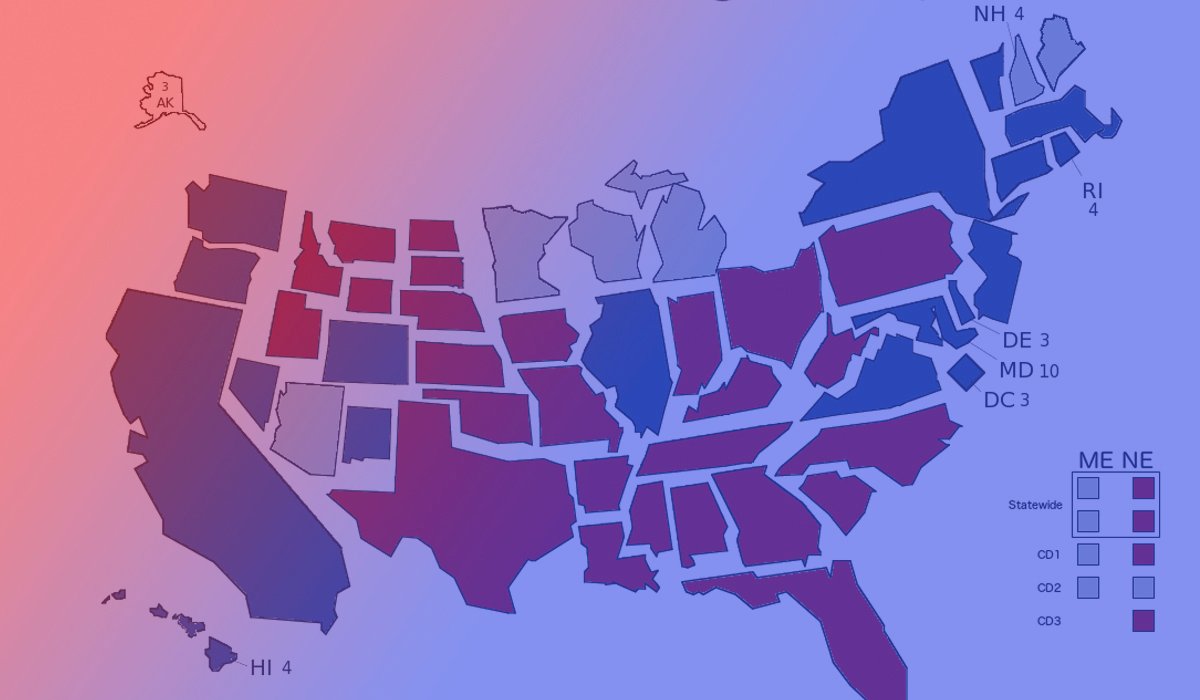In the U.S., the president is not necessarily elected by a popular vote. Currently, there are 535 U.S. representatives and U.S. senators nationwide. Three more are granted to the District of Columbia, totaling 538 electoral votes.
In a representative democracy, equality is embodied by actors elected to a state’s parliament or legislature. The elected, therefore, have a responsibility to serve the greater needs of the public that put them in office.
Things don’t always work this way, but that’s the idea.
In the U.S., the president is not necessarily elected by a popular vote. Remember in Decision 2000 that Al Gore actually had more tallies than George W. Bush. The leader of the free world actually makes it into the White House through the electors of states in the electoral college, a system designed by the writers of the U.S. Constitution as stated in Article II, Section 1, Clause 2:
Each State shall appoint, in such Manner as the Legislature thereof may direct, a Number of Electors, equal to the whole Number of Senators and Representatives to which the State may be entitled in the Congress: but no Senator or Representative, or Person holding an Office of Trust or Profit under the United States, shall be appointed an Elector.
And currently, there are 535 U.S. representatives and U.S. senators nationwide. Three more are granted to the District of Columbia, totaling 538 electoral votes.
Q: How are the electors decided upon?
Electors in each state are decided upon through voting inside the political parties of each state. Party leaders are brought together, and a state’s committee will select electors from a pool of people closely affiliated to the party. During the general election, ballots cast by regular voters also have a say. The winning presidential contender has an effect not only on down-ticket candidates, but also on who will become a state’s electors.
Q: How many electors are in each state?
A state’s elector total is equal to its number of U.S. senators and U.S. representatives. The exceptions are Maine and Nebraska, where the three electors are chosen by a system of popular vote. And, through a process called reapportionment, the total number of senators and congressmen for each state are allotted based upon the newest population data. That’s why California, the most populous state, has 55.
Q: When are electoral votes cast?
The 12th Amendment requires electors to meet “in their respective state” on the first Monday that follows the second Wednesday in December, and cast their votes for president and vice president on separate ballots to make the election results official. Many states have laws prohibiting electors from casting a vote for someone other than the winner by popular vote.
Q: Can Trump be denied?
It is possible, although not likely. At least one person has said they won’t vote for him, an elector in Texas who said he is “unfit” for the presidency. An opposition groups calling itself Hamilton Electors has begun trying to persuade GOP electors to cast their vote aside. 37 of them would be required to bring Trump’s number below the requisite 270.
Q: When is the new president sworn into office?
Following a joint session of Congress on Jan. 6, at which point the electoral votes are ratified, the president and vice president are sworn into office at an inauguration on Jan. 20.
